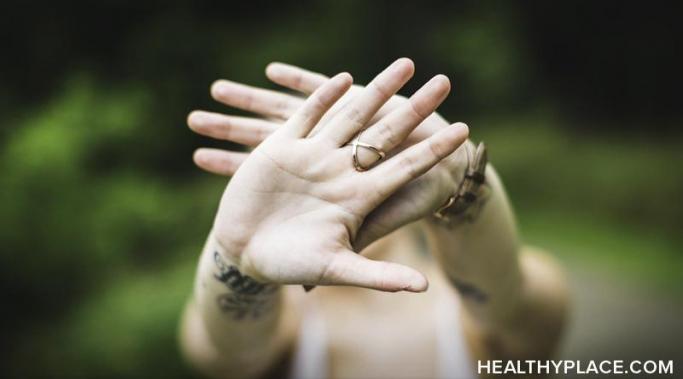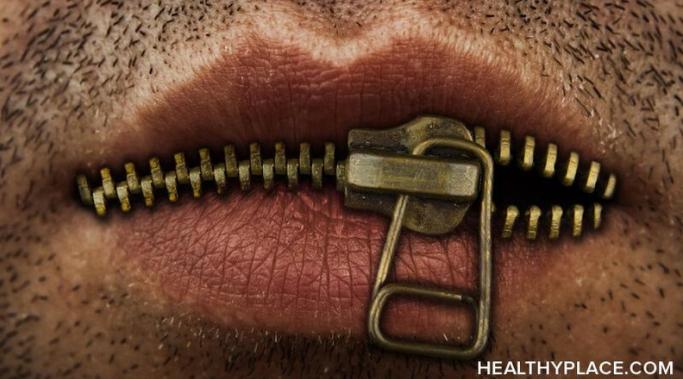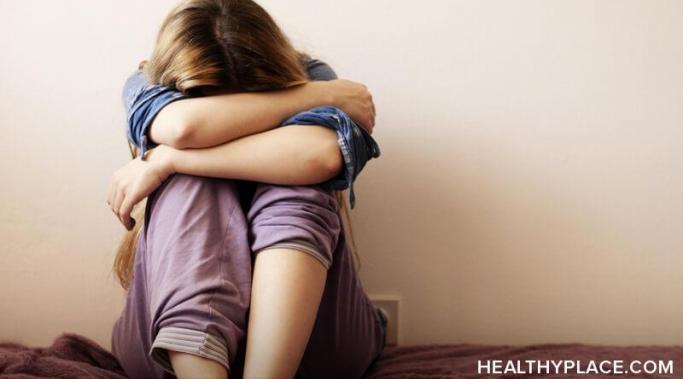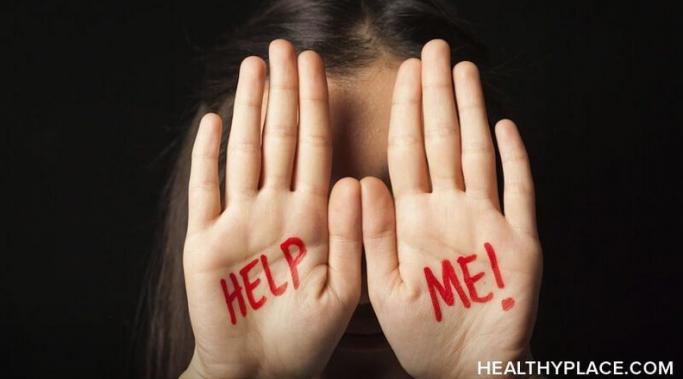At what point do you leave a verbally abusive partner? The point where you walk away from a violent partner could be a bruise, a broken rib, or even fear for your life, but how do you know when it's time to leave your abuser when the abuse is verbal? The signs of psychological or emotional abuse are often easy to dismiss, meaning we ignore the glaring red flags that tell us to get out. Nevertheless, there comes a point when the abuse gets to be too much and we just can't take it anymore. Perhaps we mentally withdraw from our verbally abusive partner, start making arrangements for a life elsewhere, or leave altogether. Your breaking point when you leave a verbally abusive partner is the moment you're forced to concede the situation is abusive -- but how do you know when enough is enough?
Verbal Abuse in Relationships
Have you noticed signs you are verbally abusive? Verbal abuse articles often focus on victims of verbal abuse because they are typically the ones reaching out for help. Not as often do we explore the other side of the coin, the abusive readers, or the readers considering they may be abusive. If you have ever considered that maybe your behavior isn’t normal or have noticed you react in volatile ways when you are agitated or lose your temper, continue reading to find out about seven signs you may be verbally abusive.
Giving affection to your abusive partner can trigger verbal abuse. Verbal abusers may lash out because they can't give affection. Don't get me wrong, they can provide acts of love when it suits them, but they aren't able to give and receive affection mutually. Often, verbal abuse and problems with physical contact go hand in hand: abusers may withhold affection or contact from partners as punishment, or criticize them for being too affectionate or needy. But it all boils down to the same underlying problem. If there's one thing my past relationship taught me, it's that verbally abusive personality types can't give affection in a healthy, mutually beneficial way, and this is why.
Verbal abuse cuts deeply, especially if you don't know how to respond to verbal abuse in an effective way. Arguments can be volatile with name-calling and blaming or more subtle like with passive-aggressive remarks or the silent treatment. One thing victims of verbal abuse come to discover is abusers are often irrational and unreasonable. The hostile language does not serve the purpose of getting a message across, it actually has nothing to do with what’s being said, it’s about the abuser's need to gain power and control over the victim. Understanding the argument itself carries no real significance as the abuser makes it apparent that trying to reason or explain is useless. Learning how to respond to verbal abuse can alter the course of the attacks and help a verbal abuse victim regain his power.
Have you been verbally abused when you were sick? It's horrible. We have enough to deal with when we're sick without being verbally abused when we're at our most vulnerable. Feeling unwell and physically weak makes us sitting targets for gaslighting, emotional abuse and manipulation because we're less likely to put up a fight. But is this part of the attraction to perpetrators or are we just more susceptible to abuse when our defenses are down? Let's examine what we know about verbally abusive personality types and why they target us when we're sick.
Toxic relationships don’t typically begin as such; they develop with time, often leading to loss of friends and family estrangement (See how abusers isolate victims). Of course, they don’t begin this way because if you met a potential partner that made you swoon but then informed you that you’d likely lose all of your best friends and family members because of him or her, well, that’s an easy deal-breaker. So why do we ever allow toxic relationships to lead to friend and family estrangement?
The link between verbal abuse and depression is well known, but I didn't realize I had depression until my verbally abusive relationship ended and I felt suicidal. It's hard to write those words because they feel so alien to me now, but it shouldn't be. It's the truth -- a truth that will resonate with anyone who's ever been told by the person they love most that they're not enough: not thin enough, not funny enough, not smart enough, or not enough to make someone happy. But was I always prone to these feelings of depression and hopelessness, or were they triggered by the verbal and emotional abuse in my relationship?
Verbal abuse and the codependent love addict often go hand in hand. There are several different types of love addicts such as the obsessive love addict, the sex addict, the relationship addict, the codependent love addict and the narcissistic love addict. Some of the different types even complement one another like magnets with opposite charges, an obvious attraction with a force difficult to interrupt. The codependent love addict pairs both painfully and perfectly with the narcissistic love addict. Verbal abuse is a routine offense for a narcissist in a relationship and accepting abuse is typical for a codependent love addict. Discovering the signs and symptoms of a codependent love addiction may be illuminating as well as an important step toward recovery.
I still have dreams about abuse despite the abusive relationship ending years ago and the progress I've made in my recovery from verbal and psychological abuse. Sometimes I am trapped in a house with him, unable to escape. Other times the roles are reversed: I become the abuser, and he is the one begging for my love and respect. But then there are the nightmares -- the dreams so violent and terrifying that they take weeks to shake off. I'm sure these forays into my subconscious are simply my brain trying to process what happened, but the dreams about abuse always take me right back to the way I felt at the time of the relationship abuse, and sometimes they're just downright confusing.
Resolving to learn self-help for verbal abuse in the new year can help you end next year in a better place. A New Year’s resolution is a personal promise we make with the intent to better ourselves, and New Year’s resolutions for those battling verbal abuse are just as important as any other resolutions we consider and commit to each year. If you’ve reflected on your year and thought you could really benefit from some positive change, implement solid New Year’s resolutions to improve the quality of your life: Promise to learn some self-help for the verbal abuse in your relationships.









